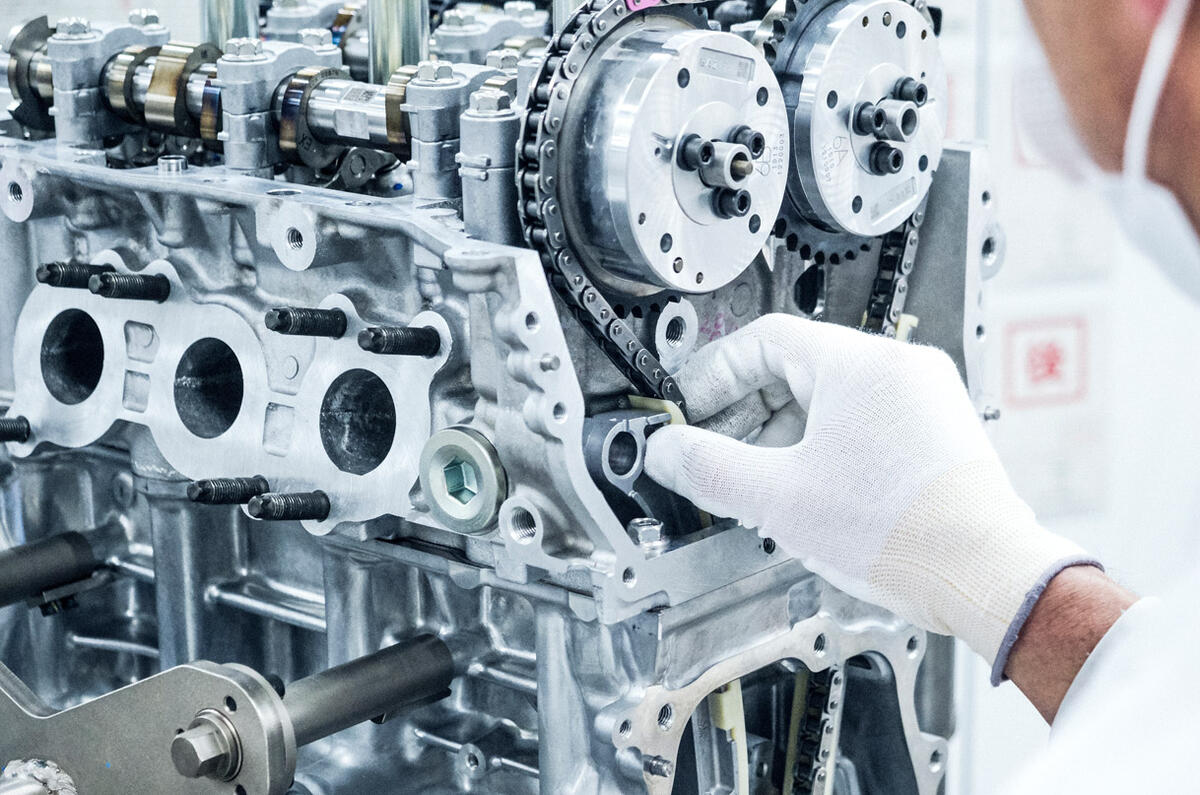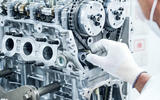Hydrogen has so far struggled to meet its early promise as an alternative road transport fuel, but it’s a subject that just refuses to go away.
Its use in hydrogen fuel cells to generate emissions-free electricity still has huge potential, but the impetus behind running internal combustion engines on it has dwindled. Interest remains, though, an example being Toyota’s development of a hydrogen-powered three-cylinder racing engine taken from the GR Yaris and used to power a specially developed Corolla Sport entered in the Fuji 24 Hours.
Although hydrogen is a clean fuel compared with petrol or diesel, it’s only completely emissions free when converted in a fuel cell system to generate electricity. When burned in a combustion engine it isn’t – quite. Although no unburned hydrocarbons (HC), carbon monoxide (CO) or CO2 are produced, nitrogen oxides (NOx) are. Air is 78% nitrogen, and in combustion it’s oxidised to produce the toxic NOx – but how much depends on how hot things get in the combustion chamber, and that’s where hydrogen engines can have an advantage.
Hydrogen is much less fussy than petrol or diesel, mixing and burning fully and efficiently in a much wider range of air-to-fuel ratios. As a result, a hydrogen engine can be run very lean (more air, less fuel) and still produce much lower ‘engine-out’ levels of NOx than petrols or diesels. Tailpipe emissions can be reduced to minute levels using existing exhaust emissions tech.
These appealing facts depend on a number of things. Although hydrogen carries a high amount of energy by weight, it’s far less dense than liquid fuels, so port-injected engines, in which fuel is injected into the inlet manifold and mixed with air outside of the cylinders, yield significantly less power running on hydrogen than they do on petrol. Direct injection improves matters and, in combination with variable-geometry turbocharging, makes hydrogen-fuelled combustion engines more viable.









Join the debate
Add your comment
It makes zero sense to use hydrogen in an ICE engine, apart for it being unlikely that they can get the NOX emissions low enough to make them legal in the EU or USA they are grossly inefficient compared to a fuel cell. Did a big bag of cash come with this post?
In what way is hydrogen 'abudant'? Certainly not as H2, even less so as green H2. Hydrogen is an overly affectionate little atom that clings on to its friends, particularly carbon and oxygen, for dear life. You have to expend an awful lot of energy on it to prise it away from its chums in order to use it as a fuel. As a fuel, abundant it is not. I think my head will explode if I hear this repeated fallacy again :-(
True benefit of increased burning velocity is on efficiency rather than response.
To be frank Jesse you're starting to look like someone with an agenda. Christ knows what it is or why. There's a lot of spurious rubbish being spouted about hydrogen and BEVs at the moment in the UK motoring press and it's starting to get properly tiresome. Why would anyone who was trying to take an environmentally responsible, commercially viablle approach even consider this? It's surely the worst of all worlds (apart from sticking with what we've got).